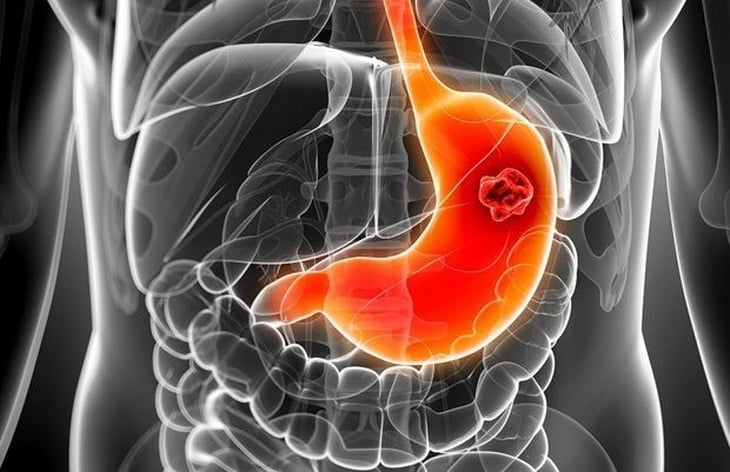
Stomach cancer tends to be younger - Illustration photo
Associate Professor, Dr. Nguyen Anh Tuan - Deputy Director of the Institute of Digestive Surgery, Head of the Department of Digestive Surgery, 108 Central Military Hospital - emphasized the key role of nutrition in preventing stomach cancer.
According to Dr. Tuan, to protect the stomach and reduce the risk of cancer, each person should build and maintain a scientific diet, following the principles of proper nutrition from an early age. Below are detailed instructions for everyone to refer to.
Add green vegetables and fresh fruits to your daily diet
Antioxidants such as vitamin C, vitamin E, beta-carotene, flavonoids and phenolic compounds help protect gastric mucosal cells from damage by free radicals, preventing the formation and development of cancer cells.
These substances are found abundantly in green vegetables and fresh fruits. Consuming at least 400-500g of vegetables and fruits every day can reduce the risk of stomach cancer by up to 30%.
Dr. Tuan also recommends that we eat at least 5 portions of vegetables and fruits every day (each portion is equivalent to 80g). Vegetables such as spinach, broccoli, tomatoes, carrots, and berries such as strawberries and blueberries are the foods richest in antioxidants.
Only use fresh fruits and vegetables, and limit the use of processed or canned fruits and vegetables containing preservatives and chemical sugars, as they can destroy beneficial nutrients.
Limit consumption of processed foods and salty foods
According to the results of many studies, processed foods such as bacon, sausages, ham and foods high in salt not only increase the risk of cardiovascular disease, but are also closely related to the risk of stomach cancer.
Consuming 50g of processed meat a day increases your risk of stomach cancer by up to 18%. Choose healthy protein sources such as fish, beans, lean chicken and eggs.
Reduce your daily salt intake to less than 6g. Replace salt with natural spices such as garlic, onions, and herbs to create flavor while still being good for your health.
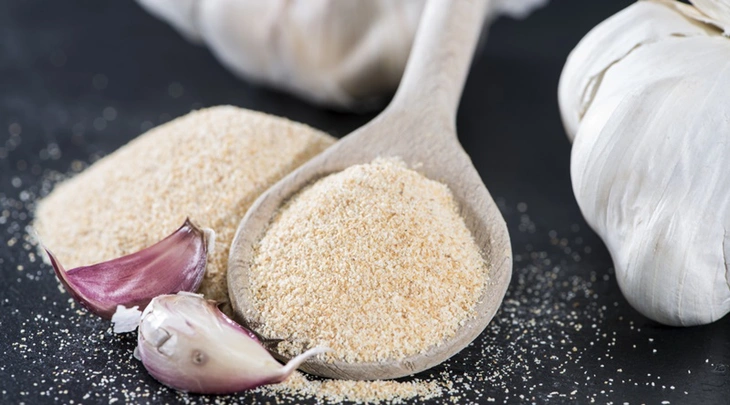
Limit salt consumption to avoid affecting the digestive system - Illustration photo
Avoid charred and smoked foods
Charred or smoked foods contain carcinogenic compounds such as nitrosamines and polycyclic aromatic hydrocarbons (PAHs). These compounds form during high-temperature cooking and can damage DNA, leading to the development of cancer cells.
Regular consumption of charred foods may increase the risk of stomach cancer by 15-20%.
So avoid grilling food at high temperatures or grilling directly over an open flame. Steaming, boiling, and lightly stir-frying are safer cooking methods.
Supplement natural fiber
Dr. Tuan stated that fiber not only supports a healthy digestive system but also helps reduce the risk of stomach cancer. Fiber helps clean the digestive system, eliminates harmful substances and protects the stomach lining.
There are many ways to increase fiber, such as eating more whole grains like brown rice, oatmeal, and whole wheat bread instead of refined grains.
Consuming beans, seeds and tubers such as sweet potatoes and carrots is also a way to provide a rich amount of fiber.
Reduce alcohol
Drinking too much alcohol is linked to many types of cancer, including stomach cancer. Alcohol can irritate the stomach lining, increasing the risk of ulcers and cell damage.
According to research from the International Journal of Cancer, consuming more than 30g of alcohol per day (about 2 glasses) can increase the risk of stomach cancer by 40%.
You should limit or stop drinking alcohol. The American Cancer Society (ACS) recommends that men should have no more than two drinks a day and women should have no more than one. Choose alternatives such as fresh fruit juice, green tea, or water to protect your stomach health.

Alcohol abuse affects health - Illustration: NAM TRAN
Prioritize foods rich in anti-inflammatory substances
Foods rich in anti-inflammatory properties such as turmeric, ginger, garlic and olive oil help protect the stomach lining from inflammatory effects, while reducing the risk of developing cancer cells.
A study by the US National Institutes of Health (NIH) has shown that curcumin in turmeric has strong anti-inflammatory and antioxidant effects, helping to reduce the risk of stomach cancer.
Add natural spices like turmeric, ginger, and garlic to your daily meals. Use olive oil instead of industrial oils like soybean or canola oil.
Source: https://tuoitre.vn/bac-si-chi-cach-an-uong-ngua-ung-thu-da-day-20251101083259843.htm




![[Photo] Prime Minister Pham Minh Chinh chairs the second meeting of the Steering Committee on private economic development.](https://vphoto.vietnam.vn/thumb/1200x675/vietnam/resource/IMAGE/2025/11/01/1762006716873_dsc-9145-jpg.webp)



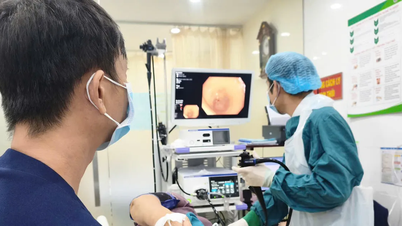



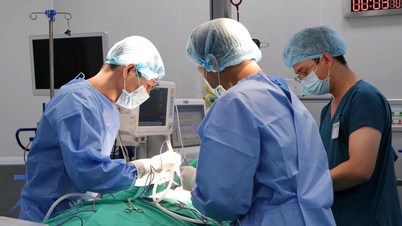


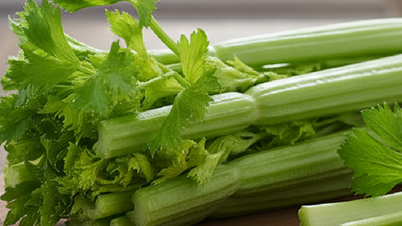
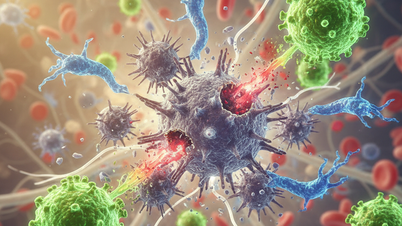



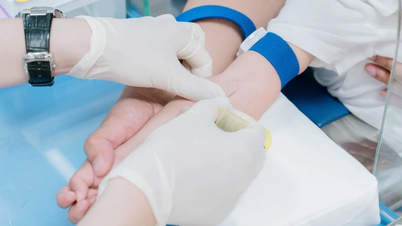



































































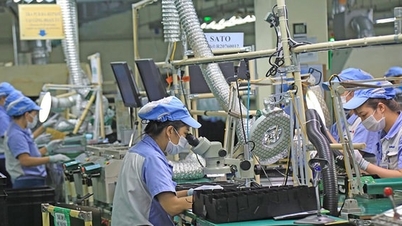
















Comment (0)